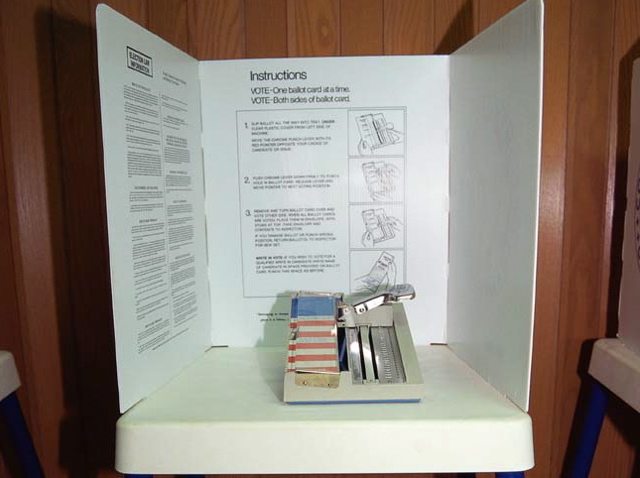Editor’s Note: With less than a week to go before Election Day, AZNow.Biz’s political columnist, Tom Milton, has revealed his recommendations on the 10 propositions on the ballot. As he says, “You’ll notice, I don’t like many of them.”
Election Day is almost here. If you are like me, you are probably already tired of the commercials, the phone calls and the mail. Along with a sea of candidates on this ballot, we will also be asked to vote on a number of issues. There are 10 propositions on this November’s ballot. Understanding a proposition in itself can sometimes be tricky, but that is only half of the battle. The tougher part can be understanding what a “Yes” vote means as opposed to a “No” vote. Here is a very short recap of the main points behind the 10 propositions.
I want to give special thanks to Stuart Goodman of Goodman Schwartz Public Affairs, who for the last few election cycles summarized this information so that it is easier to understand. I used his summary as my guide and added just a touch more information as well.
The first seven propositions are all items that the Legislature referred to the ballot.
Prop. 106 – Healthcare Freedom Act
Passing means that the state’s constitution would be amended to prohibit any law from forcing a person or business into having to participate in a specific health care system. It will allow a person to buy their health care from any provider without being fined or penalized.
Proponents (YES VOTE) say it will guarantee that health care consumers can make their own choices without being penalized.
Opponents (NO VOTE) argue it is just an effort to derail federal health care reform and will negatively impact the uninsured.
Tom’s Pick:
NO on Prop. 106
Behind every ballot initiative is usually a special interest or cause. This prop is meant to scuttle Obamacare. It is suppose to prevent people from being forced into a medical system that will penalize them if they don’t participate. It will actually not prevent Obamacare, but rather create conflict between the federal government and Arizona. I don’t feel this is the best way to deal with health care reform.
Prop. 107 – Arizona Civil Rights Initiative
Passing would amend Arizona’s constitution to ban affirmative action programs that give preferential treatment to any person or group on the basis of race, sex, color, ethnicity or national origin. This would mostly apply to government and political subdivisions such as school districts.
Proponents (YES VOTE) say this provides equal protection for all citizens by not providing preferential treatment to anyone.
Opponents (NO VOTE) argue this will turn back the clock on the civil rights movement, as these programs have helped level the playing field for disadvantaged groups.
Tom’s Pick:
NO on Prop. 107
I struggle with ballot initiatives that I feel are deceptively named. This ballot prop eliminates any affirmative-action style program. So why not call it that? Most civil rights advocates attribute affirmative action as a useful tool that has significantly helped in the civil rights movement. So this initiative wants to eliminate affirmative action and calls itself a “Civil Rights Initiative.” I know that not everyone likes these programs, but there are numerous U.S. Supreme Court decisions that prevent these programs from being run as quotas or set-asides. Any program implemented today has to be preceded by a disparity study showing that a statistical disparity exists. Then a program can be put in place for a limited time to correct that specific disparity. It is a tool. This initiative bans use of this tool and is deceptive in its name.
Prop. 109 – Right to Hunt and Fish Amendment
Passing means the Arizona constitution would be amended to declare that wildlife would be held in trust for Arizonans who have a right to lawfully hunt or fish. It would mean that only the Legislature could pass laws regulating hunting or fishing, and prohibits any law that unreasonably restricts hunting and fishing. It also provides that hunting and fishing are to be the preferred means of managing wildlife populations.
Proponents (YES VOTE) say this will protect hunting and fishing from future excessive regulation.
Opponents (NO VOTE) argue this will negatively impact the ability to use any other established wildlife management practices.
Tom’s Pick:
NO on Prop. 109
One of the things this initiative does is provide for hunting and fishing to be the preferred means of managing wildlife populations. Why would we chose to limit wildlife management to only hunting, when there are other scientific means that can also be useful? Big out-of-state money is being spent on both sides of this initiative. In favor of it is the National Rifle Association and opposed to it is the Humane Society.
Prop. 110 – State Trust Land Exchanges
Passing would amend the Arizona constitution to allow State Trust Land to be sold or leased without an auction if it is to protect a military installation or operation. It will also allow voters to approve land exchanges for military protection or land planning purposes.
Proponents (YES VOTE) say this will protect military facilities and helps better manage Trust Lands.
Opponents (NO VOTE), well, there aren’t any, or at least they haven’t said anything yet. I’ll keep listening.
Tom’s Pick:
YES on Prop. 110
When Arizona became a state, all of the land that the state owned was put into a trust to benefit education. Our forefathers were insightful to take the state’s largest resource and tie it to our greatest future need — education. It is protected in our constitution and has no flexibility. Unfortunately, there was no way that at statehood they could understand the idea of making small future exceptions that might serve a greater good. Protecting Luke Air Force Base is worth making an exception and adjusting the stringent constitutional land laws.
Prop. 111 – Lieutenant Governor
Passage would amend the Arizona constitution to change the title of the secretary of state to lieutenant governor. They would have the same job responsibilities, be elected independent of the governor, and be the first in the line of succession should the governor leave office.
Proponents (YES VOTE) say that given the regularity by which Arizona has had the secretary of state become governor, this would help voters understand the importance of the role when voting for them.
Opponents (NO VOTE) argue that after the primary election, same party candidates for governor and lieutenant governor would be forced to run as a slate. They also point out that this initiative calls for governor and lieutenant governor candidates to be from a major party, thus eliminating the ability of an Independent (which is not itself considered a party) to aspire to them.
Tom’s Pick:
YES on Prop. 111
This initiative changes the title of the secretary of state to lieutenant governor. The person in office would still retain all of the same duties. Because Arizona has had a consistent history of governors not finishing their terms in office and the secretary of state taking over, this would help voters understand the significance of their vote: They are voting for the second-highest ranking official in the state.




